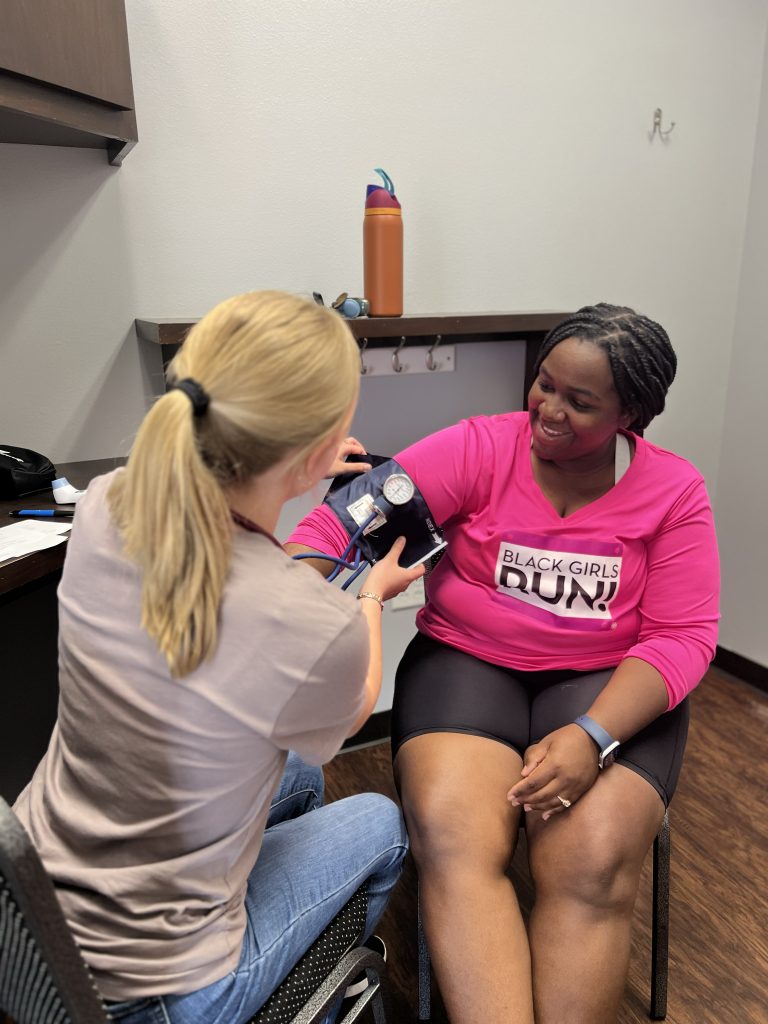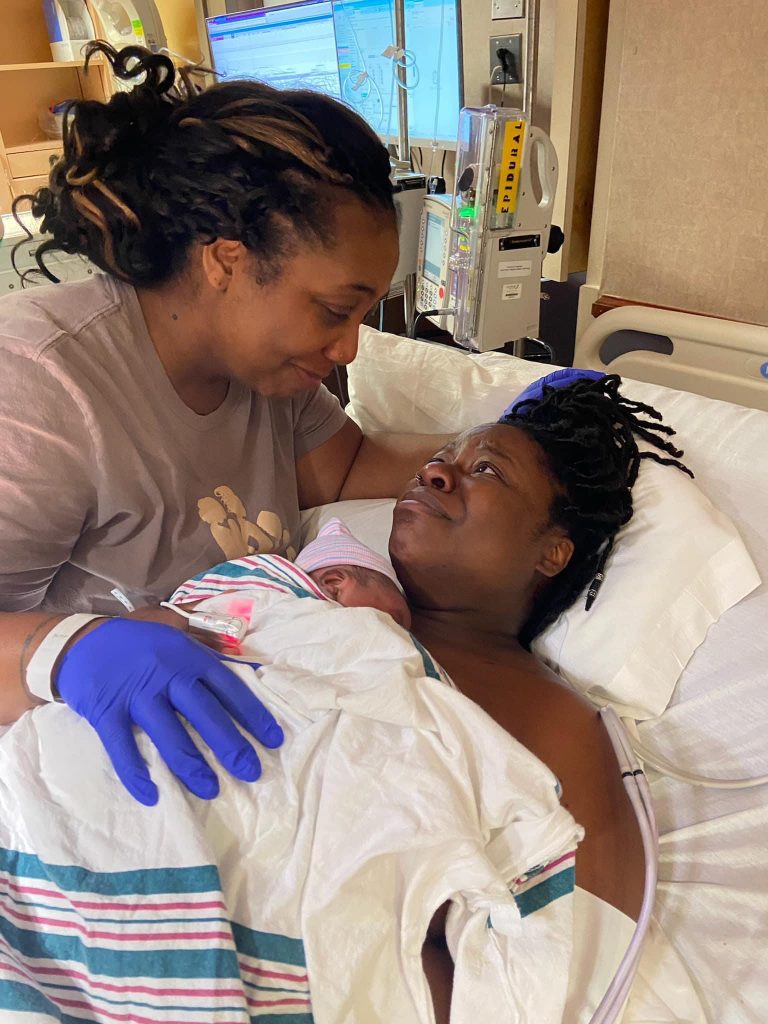Ujima Maternity Network trains birth professionals to address maternal health disparities
By Adena White
Maternal deaths from pregnancy-related causes continue to rise. From 2018 to 2021, for every 100,000 live births in Arkansas, 44 mothers died from pregnancy-related complications before their baby’s first birthday.
Socioeconomic and racial disparities exacerbate this crisis: Black, non-Hispanic mothers are twice as likely to die from pregnancy-related causes than white, non-Hispanic mothers.
One proven solution to the maternal health crisis is ensuring that all women have access to doula support. Doulas provide physical and emotional support to pregnant women during pregnancy and beyond and are different from midwives in that they give no medical care. Visionary doulas across Arkansas have come together to form a doula association, with technical assistance provided by Excel by Eight. The doulas’ vision is to advance the profession of birth work through advocacy and education, improve access to doula services, and ensure the consistency and quality of those services. In particular, doulas are advocating to have their services reimbursed by Medicaid and health insurance plans.

Nicolle Fletcher is one of the doulas leading this effort. When she completed her doula certification training in 2010, little was known about the nation’s growing rate of maternal deaths. She became a doula to help women “reclaim the power of birth,” providing guidance and support to women during labor as well as serving as a lactation counselor, childbirth educator, and an apprentice midwife.
“When it comes to the maternal health crisis,” Fletcher said. “Doula care should be accessible to the people who need it most, regardless of their socioeconomic status.”
Fletcher first noticed in 2017 that poor health outcomes for Black mothers began to grab national headlines. Around this same time, she was at a point in her career where she felt discouraged and considered quitting the profession altogether. But an increase in clientele — particularly among Black women who were concerned about the alarming statistics in the news — reminded her of her purpose.

“I’m here on purpose, and I think about so many lives that have been impacted by me following my purpose, which has opened doors for others to do the same.”
As one of the few Black doulas in Arkansas at the time, Fletcher recognized a need to train more Black women to become doulas to address these growing concerns. What was initially designed to be a one-time, weeklong training for aspiring doulas became the creation of a new nonprofit, Ujima Maternity Network.
Fletcher — along with doulas Sarita Hendrix, Amber White, Regina Chaten, Shenika Reed, Erika Davis, and Shakia Jackson — founded the nonprofit on December 28, 2018, the third day of the seven-day African American holiday of Kwanzaa. The principle of Ujima (pronounced oo-JEE-mah) is the focus that third day, which means “collective work and responsibility” in the Swahili language.
“Ujima is about collective work. We’re going to work collectively; we’re going to own our responsibility, and we’re going to bring about solutions,” Fletcher said.
Since it was established, Ujima Maternity Network has trained 25 doulas of diverse ethnic backgrounds in hopes of reaching more women across the entire state. Six women are currently enrolled in the training program, and the goal is to train 40 doulas across the state this year.

“It’s fundamental to have an advocate as far as doula support that looks like you and can meet you right where you are without having to explain certain things,” Fletcher said. “There is an uncommunicated understanding that exists.”
During the six-month certification program, doulas-in-training are required to read and report on at least five assigned books, attend at least three birth experiences, participate in monthly training sessions with other members of their cohort, and complete a research paper. The participants are paired with a mentor doula and attend outreach events, emphasizing the importance of communal care.
Since Ujima’s founding, Fletcher has witnessed a decrease in cesarean sections and an increase in birth satisfaction, resulting in mothers who feel educated, supported, and empowered during their birth experiences.
“People do a lot of missions overseas, but Arkansas is a mission field,” Fletcher said. “And I think we need to look at it that way.”
